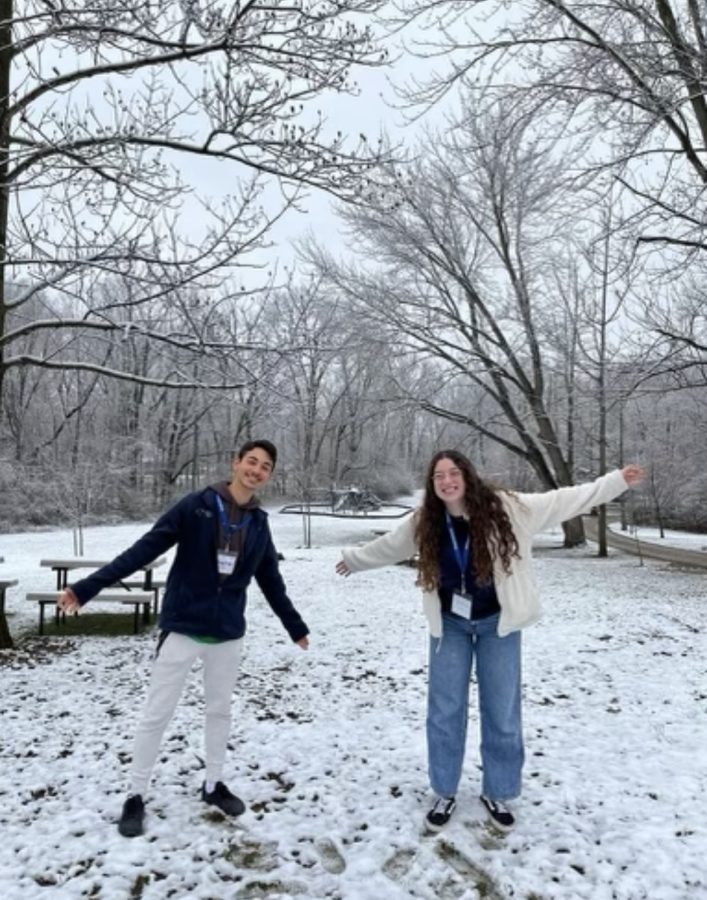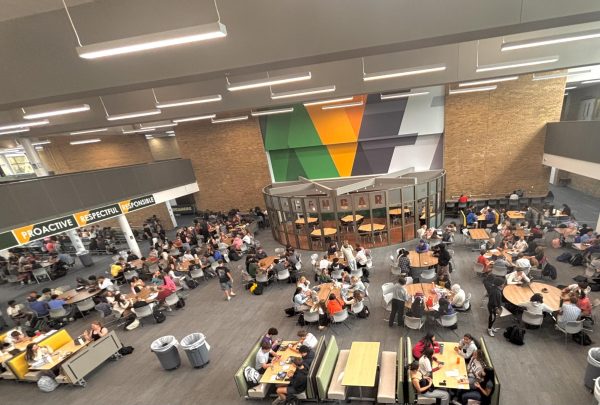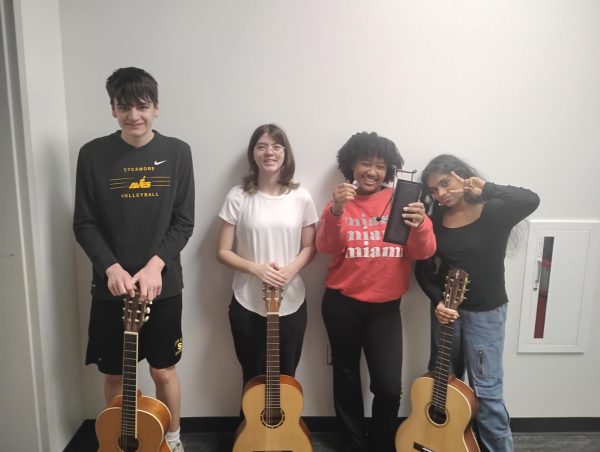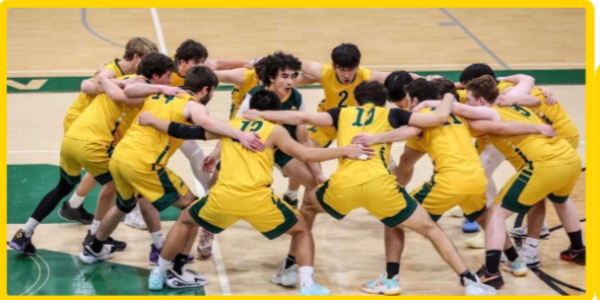Chaverim
Shachar Aviram and Mika Ritter came to Cincinnati with the Jewish Agency for Israel. Both are from Israel, where it is required to join the Israeli Defense Forces (IDF) after high school, before college. In both their cases, they chose to delay that and instead come to the U.S. to teach both Jews and non-Jews about Israel and Judaism. They have been to schools and taught students, participated in youth group activities, and led several projects and activities as well, as a part of the Cincinnati program known as Chaverim, or ‘friends’ in hebrew. Below are some questions we asked them and their responses.
Why did you decide to come to Cincinnati instead of joining the IDF right out of high school?
Mika – “In the Israeli Scouts…I taught seventh graders about community, and about how we can contribute to our community. After high school, I said ‘Oh, I have so much more to give [to my community] before joining [the IDF]’ so I applied to every gap year program…I think [I have] so much more to give before the real world.
Shachar – I wanted another year after high school, and I had the opportunity to get accepted into one of the programs…and I also wanted to give… in a different way. The reason I chose this specific [program] is because it is an adventure that is amazing and a great way to give something of myself to people.
What are some highlights of your time here?
Mika – “One of my highlights has been changing people’s minds. Sometimes we are the first Jewish person they’ve ever met, let alone the first Israeli they’ve ever met. They see we are normal people and do the same things they do. We have the opportunity to change people’s minds and get them excited about Judaism and Israel.”
Shachar – “We are breaking bad, fake news. We have made big events for different holidays, Jewish holidays. We learn so much about each holiday, more than [we knew already]. Here, it is a choice to be Jewish…that [only] from living here you can understand. In Israel, that’s just the norm. ”
Is there anything specific you are looking forward to before leaving?
Shachar – “There are a lot of endings here, and then we will go to [Camp Livingston], which is a big deal.”
Mika – “I’m waiting for more adventures to come. We have had so many new things here and new people, and we’re going to meet the next Chaverim, and I am going to get to see my host sister go off to college.”
What are some difficulties of living in a new country for a year?
Mika – “I’ve never been so far away from my siblings. And, I’ve never been so far away from all my family and in a timezone [difference of] seven hours. There are also cultural differences; like things we can do in Israel, we sometimes can’t do here [and vice versa].”
Shachar – “I think the distance from home is definitely the hardest, but also we had huge help, like our host families, which were [real] families for us. We had people to talk to, so we were never really alone, but also [during] some moments you’re alone and [need to be] the person for yourself. But, I wouldn’t [trade] this experience [for anything].”
It is really important to Shachar and Mika to shatter negative stereotypes about joining the army. They emphasize that this is one of the biggest cultural differences they have encountered in their time in the US. “We have all been expecting [to go to the army] since kindergarten” Mika explained, meanwhile in the U.S. kids are expected to grow up and go to college and keep studying or work. They explained that it also does not necessarily mean army in our day-to-day terms. There are many jobs in the army, including TikTok, dog training, entertainment, and even a magician. Not everyone is defending on the front lines. “It is [needed] to keep our country safe and a great place to meet new people,” Mika said.
Your donation will support the student journalists of Sycamore High School. Your contribution will allow us to purchase equipment and cover our annual website hosting costs.









